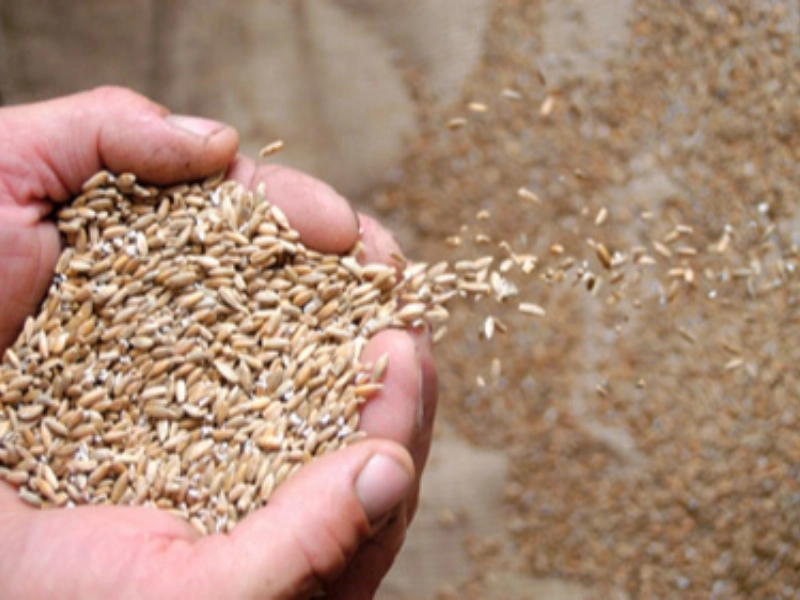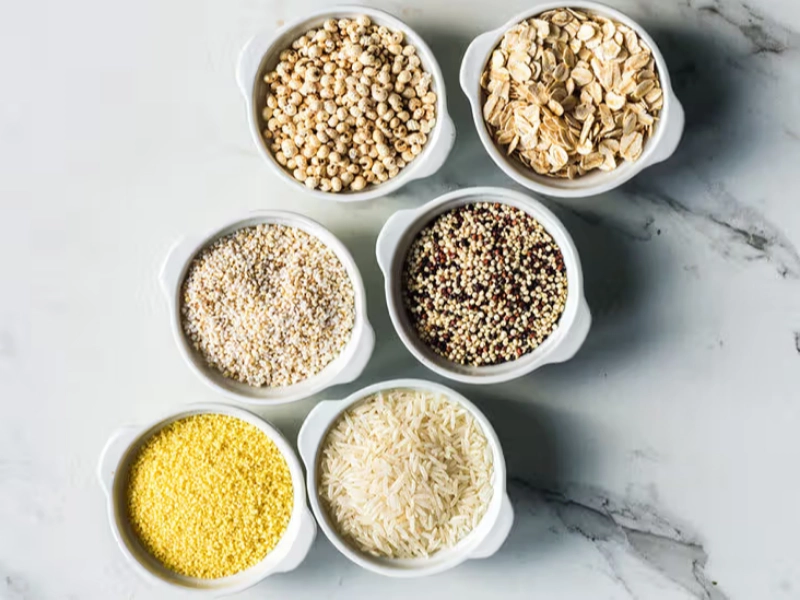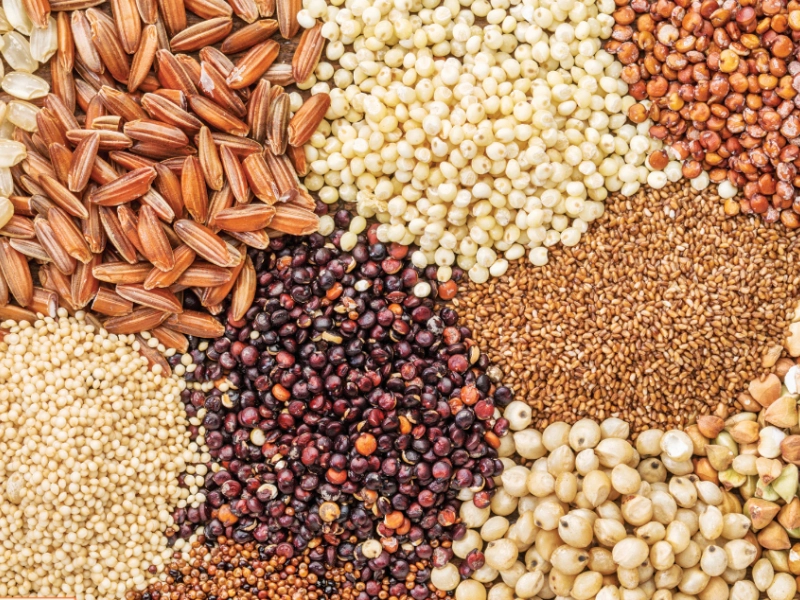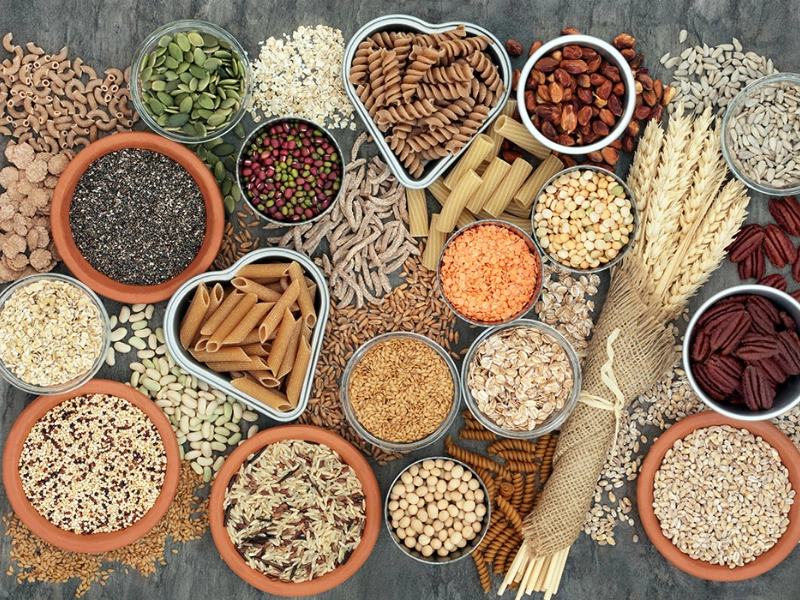Overall well-being depends on maintaining ideal liver function, hence include grains into your diet might be rather important for this process. Rich in vital minerals, fiber, and antioxidants to help preserve and improve liver function, grains also This article investigates the several ways in which several kinds of grains support liver health and emphasizes their advantages as well as how to include them into your regular diet.
 A key element of grains, fiber helps digestion and encourages consistent bowel motions, therefore supporting liver function. Dietary fiber is found rather well in whole grains including quinoa, brown rice, and oats. By absorbing toxins and extra lipids in the digestive tract, this fiber lessens the load on the liver. The liver creates waste products that must be expelled as it breaks down meals. Eating high-fiber grains helps the liver to detoxify itself and guarantees effective operation of it. Furthermore important for preventing fatty liver disease is the regulation of blood sugar levels that fiber aids with. Reducing insulin resistance and keeping a good weight help to support a better liver by means of fiber-rich grains.
A key element of grains, fiber helps digestion and encourages consistent bowel motions, therefore supporting liver function. Dietary fiber is found rather well in whole grains including quinoa, brown rice, and oats. By absorbing toxins and extra lipids in the digestive tract, this fiber lessens the load on the liver. The liver creates waste products that must be expelled as it breaks down meals. Eating high-fiber grains helps the liver to detoxify itself and guarantees effective operation of it. Furthermore important for preventing fatty liver disease is the regulation of blood sugar levels that fiber aids with. Reducing insulin resistance and keeping a good weight help to support a better liver by means of fiber-rich grains.
 Many antioxidants found in whole grains aid in the body's defense against oxidative stress. When an imbalance between free radicals and antioxidants causes cellular damage, oxidative stress results. Given its prominent involvement in detoxifying, the liver is especially vulnerable to oxidative damage. Antioxidants such phenolic acids and flavonoids abound in grains including barley, bulgur, and whole wheat. These substances assist liver cell renewal and help shield them from harm. Including these grains high in antioxidants will help your liver heal from damage and operate as it should.
Many antioxidants found in whole grains aid in the body's defense against oxidative stress. When an imbalance between free radicals and antioxidants causes cellular damage, oxidative stress results. Given its prominent involvement in detoxifying, the liver is especially vulnerable to oxidative damage. Antioxidants such phenolic acids and flavonoids abound in grains including barley, bulgur, and whole wheat. These substances assist liver cell renewal and help shield them from harm. Including these grains high in antioxidants will help your liver heal from damage and operate as it should.
 Additionally a major source of B vitamins, which are vital for preserving liver health, are grains. Energy metabolism and the production of neurotransmitters depend much on B vitamins, which include B1 (thiamine), B2 (riboflavin), B3 (niacin), and B6 (pyridoxine). These vitamins help the liver breakdown toxins and digest nutrition. Niacin has been demonstrated, for example, to lower liver inflammation and enhance lipid profiles. Including grains such as brown rice and fortified cereals in your diet can enable you to guarantee sufficient levels of these crucial vitamins, so supporting the general operation of your liver.
Additionally a major source of B vitamins, which are vital for preserving liver health, are grains. Energy metabolism and the production of neurotransmitters depend much on B vitamins, which include B1 (thiamine), B2 (riboflavin), B3 (niacin), and B6 (pyridoxine). These vitamins help the liver breakdown toxins and digest nutrition. Niacin has been demonstrated, for example, to lower liver inflammation and enhance lipid profiles. Including grains such as brown rice and fortified cereals in your diet can enable you to guarantee sufficient levels of these crucial vitamins, so supporting the general operation of your liver.
 The health of the liver depends on a good weight, hence whole grains can be quite helpful in reaching this aim. Because of their increased fiber content, which can help lower hunger and cut overindulgence, whole grains are more satisfying than refined grains. Better weight control and lower risk of non-alcoholic fatty liver disease (NAFLD) can result from eating whole grains. In addition, whole grains release glucose more slowly into the bloodstream than their refined counterparts because their glycemic index is lower. This consistent energy delivery helps to balance blood sugar levels, so aiding efforts at weight control.
The health of the liver depends on a good weight, hence whole grains can be quite helpful in reaching this aim. Because of their increased fiber content, which can help lower hunger and cut overindulgence, whole grains are more satisfying than refined grains. Better weight control and lower risk of non-alcoholic fatty liver disease (NAFLD) can result from eating whole grains. In addition, whole grains release glucose more slowly into the bloodstream than their refined counterparts because their glycemic index is lower. This consistent energy delivery helps to balance blood sugar levels, so aiding efforts at weight control.
Incorporating a range of whole grains into your meals is crucial if you want to benefit from them for liver health. Start by switching your diet's processed grains for whole grains. Choose whole grain bread or oatmeal for breakfast rather than sugary cereal. For lunch, base salads or grain bowls on brown rice or quinoa. To keep your meals interesting and nutrient-dense, experiment with several grains including buckwheat, millet, or farrow. For a good boost throughout day, also think about include whole grain snacks like popcorn or whole grain crackers into your diet.
Although grains are quite helpful for maintaining liver function, we should not overlook the need of hydration. The liver cannot run as it should without water since it facilitates the cleansing process and aids in waste elimination by the body. Eating high-fiber grains calls for plenty of water to enable the fiber perform as it should. Maintaining hydration helps the liver clear toxins and helps avoid constipation. Try to get at least eight glasses of water daily, and for extra taste and health advantages think about herbal teas or infused water. Knowing how grains can especially support liver health can help you choose foods that advance well-being. Including a range of whole grains in your meals and paying close attention to fiber, antioxidants, and B vitamins will help your liver operate at much better level overall.